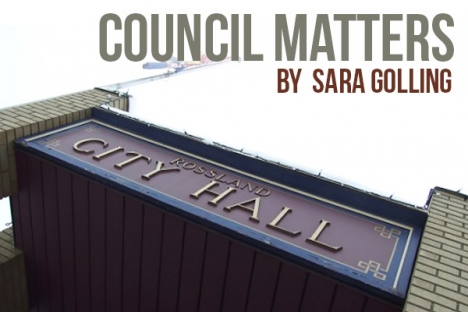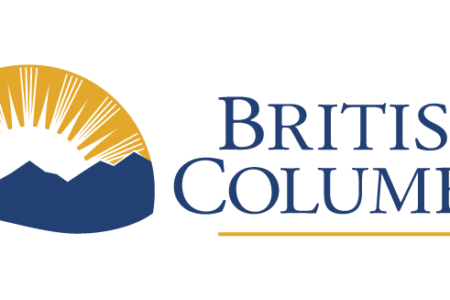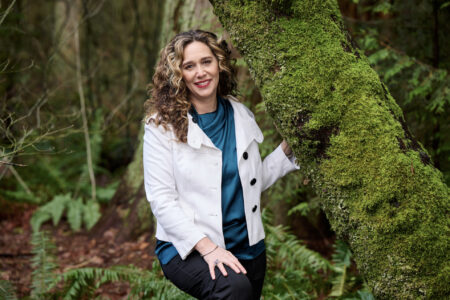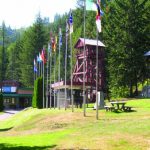Rossland City Council Meetings, April 20, 2020 -- held by Zoom
Editor’s Note: This report attempts to capture the substance of the meetings and to include all information of importance, but not every comment or question is included.
Councillors Present: Mayor Kathy Moore, and Councillors Janice Nightingale, Dirk Lewis, Andy Morel, Stewart Spooner, and Chris Bowman.
1. Committee-of-the-Whole Meeting, 5:30 pm
Mayor Moore introduced the meeting, and explained that it is being recorded.
Laura Pettitt spoke to ask whether members of the gallery could ask questions during the meeting; Moore said that, since there were so few people attending, she would allow it. Moore noted that the City had received some written submissions, which will be included in the minutes of the meeting. She added that one of the messages had come in just before the meeting started, and that it was in favour of a 0% property tax increase, which had been defeated by Council at the previous meeting.
Chief Financial Officer Elma Hamming introduced the financial plan and explained the basic budget lines and what each one would be covering. She used a 21-page document explaining in detail the City’s funding sources and its planned expenditures.
Good news for everyone in town who uses water: the City obtained a grant to do major upgrades on the water treatment plant, which will – among several other benefits – reduce the acidity of our water, which will reduce or eliminate leaching of copper and lead from pipes.
Moore commented that she’d like the City to start thinking seriously about transitioning to electric vehicles and tools when making fleet and equipment purchases.
Council discussed the cost to the City of extending the deadline for payment of property taxes, and reducing or eliminating penalties for late payment. Spooner explained that he’d like any benefits the City funds to go to those who really need help, instead of those who don’t need it.
Teasdale reminded Moore that people were waiting to join the regular council meeting; she adjourned the CoW, and everyone exited the first Zoom meeting and then signed in again, for the regular meeting.
2. Regular Council Meeting — Public Input Period:
No one did the electronic hand-raising.
Delegations:
1 Wes Startup, board chair of the Lower Columbia Initiatives Corporation (LCIC), and Bill Van Beek, president of the Lower Columbia Community Development Team Society (LCCDTS), introduced the new Executive Director of the LCIC: Tim Grouette. Grouette spoke to a presentation outlining what the LCIC and its committees do to attract, retain and help local businesses.
2 Aaron Cosbey and Thompson Hickey presented a report on behalf of the Rossland Recreation Task Force, reviewing the options available for Rossland’s swimming pool and possible alternatives. They discussed the pool history – it was built by volunteers in 1932; current usage — about 12% of Rossland’s population; the current costs of renovation and repair; potential pool closure and possible sale of the pool property; possible preparation and use of Star Gulch Reservoir or Ophir reservoir for swimming and other water sports; possible development of a “splash park” or “spray park;” and examined the relative costs to residents of using pools in neighbouring communities.
The group had access to outdated studies done several years ago, but could not make firm recommendations on any of the options – except to gather updated information. Cosbey noted with some regret that here is more funding available for constructing new facilities than for repairing and maintaining old facilities.
Lewis asked whether a reservoir would have to be removed as a drinking water source permanently, or just during the swim season; Albo explained that it could be reinstated as a drinking water source as soon as water quality testing was satisfactory. He also noted that if used as a swimming hole, it would have to have fresh water running through it, which would be another demand on our water supply.
Morel expressed concern about access to water for firefighting in case of need; Albo commented that if the need for more water arose, a “boil water” advisory could be issued if City water had to be taken from a reservoir not currently approved for drinking water.
Moore thanked Cosbey and Hickey for their work.
Policy Review:
Council reviewed the City’s policies on Land Transactions (covering the purchase and sale of property by the City), Pesticide and Herbicide Use, and Recreation Facilities User Allocation; motions to re-confirm each policy CARRIED.
On the pesticide and herbicide policy, Morel wanted to ensure public knowledge of the policy; Council had previously contemplated creating a bylaw regulating the use of pesticides and herbicides, but Lewis commented that he has been reviewing bylaws from other jurisdictions, and hasn’t come up with anything he would recommend for Rossland.
Bylaws:
City of Rossland Financial Plan 2020 – 2024 Bylaw # 2722: A motion to give the bylaw as amended second and third readings CARRIED after considerable discussion (see below).
CFO Elma Hamming’s materials had introduced the amended plan with a summary of its development:
“Department managers started the budgeting process in September 2019. At the October 21, 2019 Regular Council Meeting, Council reviewed a draft Operating Budget, and at the November 18, 2019 Regular Council Meeting, Council reviewed the Capital Budget and Five Year Financial Plan. In addition, the plan was reviewed during the Committee of the Whole Meeting on January 21, 2020. Citizen engagement was sought through the Citizen Budget survey tool active from January 15, 2020 to February 10, 2020 … ” Council reviewed the Citizen Budget input at the regular Council meeting on April 6.
She explained that the Plan has been amended since first reading on April 6 by various updates based on new information, such as updates on the Red Mountain Local Service Area and Ophir Parcel tax rates; an accumulated surplus update; updated Capital Expenditure, based on additional costs for the Red Mountain Resort Entrance project; and updated information on the Regional Sewer Utility transfer.
Moore noted that some money may not be spent as planned – such as the Council travel budget – and some may be spent on other as-yet-to-be-determined items to help the community through the pandemic. Lewis asked when Council should discuss those possibilities. Teasdale suggested that once the financial plan is set, then discussions about moving funds around would be more appropriate. Lewis wanted to make it clear that the City is considering helping those who need it because of the pandemic; Moore explained that proceeding with the planned budget and tax increase will provide some funds that the City would be able to find ways to help the needier residents, and the best ways to do that may become evident. Teasdale explained that no one knows yet what cost savings may result from the limitation of activities, and what costs to the City may also result. Moore suggested that staff could begin to track the savings from cancelled events, and the additional costs as well. Nightingale noted that the re-allocation of AKBLG travel funds at the previous Council meeting to provide funding for the Chamber of Commerce was a good move. Lewis suggested deferring non-urgent equipment purchases to be better prepared for eventualities.
Municipal Tax Rate Bylaw # 2724: Council reviewed the tax rate bylaw, and a motion to give the bylaw first, second and third reading CARRIED.
The bylaw is scheduled for final adoption on May 4, 2020.
Red Mountain Specified Area Tax Rate Bylaw # 2725: A motion to give the bylaw first, second and third readings CARRIED.
The bylaw adjusts the tax rate to collect the correct amount to cover the payments on the loan that was taken out in 1995 to extend municipal water and sewer services to the Red Mountain base area. The cost of covering the loan has diminished; the loan will be retired in 2022.
Ophir Reservoir Local Service Area Parcel Tax Bylaw # 2726: This is another bylaw adjusting the amount payable per dwelling unit in the Service Area, in recognition of the fact that the cost per unit of servicing the debt incurred for the Ophir Reservoir has decreased slightly – from $59.50 per unit to $58.93 per unit. A motion to give the bylaw first, second and third readings CARRIED.
Moore asked when the debt would be retired; Hamming replied, in 2032.
Checkout Bag Regulation Bylaw: The COVID-19 pandemic has resulted in plastic check-out bags being used again by grocery stores. If Rossland wishes to have its bylaw restricting the use of plastic check-out bags ready to implement when the pandemic restrictions are lifted, it can submit a revised bylaw to the Provincial Government for approval. Or it could wait to see whether the Province passes its own bylaw regarding plastic bags and possibly other single-use plastics. A motion to give first, second and third reading to the replacement Checkout Bag Bylaw # 2723 CARRIED.
Staff Reports and Updates:
Flux Climbing Ltd. submitted a request to waive rental payments during the enforced closure of the business because of COVID-19. Flux Climbing rents the lower part of the Miners Union Hall, and pays $1,750 per month plus taxes, which is a hardship while the business is unable to generate any revenues.
Spooner referred to a federal commercial rental-assistance program, which he thought might provide a “forgivable loan” for up to 50% of the rent during the pandemic, and moved that the City reduce the rent by 50%. Bowman provided more detail on the program; Lewis pointed out that Flux Climbing has no remaining revenue stream at all, and no access at all to the building.
Moore noted that the City has other tenants, and should have a consistent approach. Recreation manager Kristi Calder pointed out that Flux is unlikely to be eligible for the federal program. She also pointed out that the City’s tenants belong to three different categories and may be eligible for different relief programs – if any. Morel wanted to defer the decision until the City obtained more information.
Spooner noted that the motion to provide Flux with a 50% rent reduction as of April 1 was predicated on Flux being able to get other relief. That motion FAILED unanimously.
Spooner noted that there seem to be new programs coming out to help beleaguered businesses.
Hamming commented that the City isn’t giving Flux any money – “all we’re doing is not billing him for the rent.”
Lewis moved that the City forgive Flux’s rent until the BC provincial order regarding COVID-19 is lifted. The motion CARRIED.
Morel moved that staff look for opportunities for assistance for all three City tenants. The motion CARRIED.
COVID-19 Essential Services Mutual Aid Agreement:
Council reviewed the proposed agreement among the communities of Rossland, Warfield, Trail, Montrose and Fruitvale, to assist each other as necessary – with protective provisions – to provide essential services. This agreement is supported by Ministerial Order MO84, which requires local authorities to use their “best efforts” to enter into mutual aid agreements with neighbouring jurisdictions to ensure the continuity of essential services, especially water and sewer.
A motion to endorse the agreement CARRIED. Bowman commented, “All I want to know is, why haven’t we done this before?”
Council reviewed the updated task list – and Moore commented that “the item about looking into remote Council meetings suddenly jumped from a low priority to a very high one!”
Member reports:
Nightingale coordinated with a number of local volunteer citizens to arrange for deliveries of groceries and pharmacy items. The service was quite busy initially; demand has dropped, but she notes that people are just grateful to know the service is there. She reported that the Mid-town Transition project is now awaiting information from the BC Housing energy modelling contractor on the most suitable heating and cooling systems, and associated cost estimates.
Lewis reported (inter alia) that the library is looking for additional board members. He moved that the City provide the plastics recycling project with a letter of support; the motion CARRIED. He also said that the Climate Caucus will be sending a letter imploring the federal government to shape the country’s recovery from the pandemic by: investing in people, legislating the UNDRIP, Investing in restoring ecosystems, investing in public and active transportation and infrastructure, investing in renewable energy infrastructure, investing in local food security, investing in small businesses, investing in zero waste initiatives, and divesting from the fossil fuel industry.
Morel submitted a report on March’s RDKB meetings; Spooner asked about the 10.86% RDKB budget increase, as he thought it was exorbitant. Morel detailed some of the additional costs and the RDKB’s plan to take money from reserves to cover some of them, and noted that Rossland doesn’t pay toward all of it. Moore commented that taking from reserves to cover increased costs is completely unsustainable. Spooner commented that Rossland pays but has zero control over the amounts.
Morel emphasized that it’s important for people to know about the provincial fire restrictions.
Bowman mentioned that some non-essential businesses in Trail are opening, and expressed deep disappointment with their actions.
Moore is still doing weekly calls with the minister; was on a call with Celgar, which employs 450 people – 6 from Rossland; they say they may have to shut down in a few months. She expressed appreciation for the local efforts that have been made to ensure that we are prepared for an outbreak of COVID-19. The “masks for all” initiative is getting underway.
Council then returned to Lewis’s point about “targeted assistance” for our community. Lewis wants the City to “prepare for the worst” – to avoid any unnecessary spending, to save money where possible toward a “worst-case scenario.” Moore is involved in an economic resiliency planning group, and assured Lewis that the group is looking at some of his concerns.
Nightingale suggested that the City set up a program for people to apply for late-payment penalty forgiveness; Hamming commented that she didn’t’ think that was “a very good road to go down.” She said that establishing criteria is very difficult. Spooner thinks there will be better opportunities to help in more significant ways.
Lewis thinks we need to be prepared for the pandemic still to be ongoing in October. Hamming suggested that relief may be “more of a 2021 decision” and Moore agreed that 2021 could be the more challenging year, and the City may be helping more by providing employment. She would like to come up with a targeted benefit for those who need it.
Spooner said he thinks austerity is the wrong way to go – “it just makes things worse.” Moore noted that it’s important for the City to keep its services operating. Spooner commented, “we’re going to have to be paying attention to what we’re spending money on.” Lewis drew a distinction between spending on projects and employing people and spending money on purchasing things. Hamming confessed that she has a problem with deferring capital spending – when she first started her position here, City Hall had no internet and no phone service for several days; “it was always failing, and that was because capital was deferred.”
Council agreed to continue thinking about the issues raised.
The meeting adjourned, and your reporter pressed the “shut down” button and noted that the cat’s ears — which had been noticeably flattened while tinny, Zoom-distorted voices were coming out of the computer – returned to their normal perkiness when the voices stopped.
























